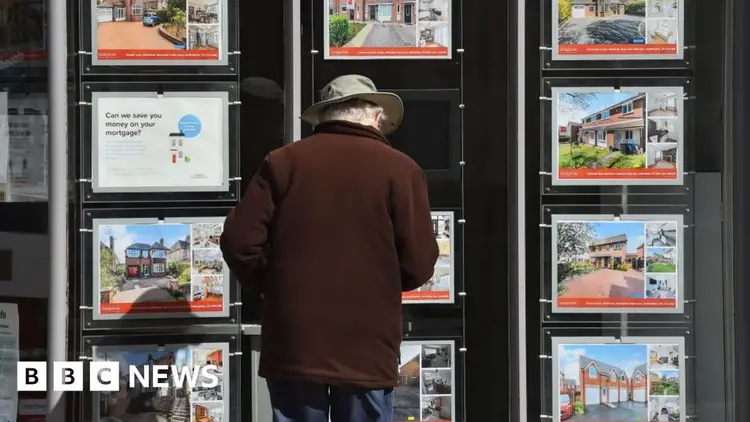Stamp duty tax on second homes to rise

Chancellor Rachel Reeves has revealed in the Budget that the stamp duty charged on those purchasing a second home will increase.
Stamp duty is a tax incurred when purchasing property that exceeds a specific price in England and Northern Ireland.
Individuals purchasing an additional property already face a higher tax rate, and starting Thursday, this rate will increase from an additional 3% to 5%.
The Treasury announced that this change will benefit first-time homebuyers and people wanting to relocate, providing them with a better opportunity compared to those buying second homes or rental properties. This is expected to lead to an extra 130,000 property transactions among these groups in the next five years.
It mentioned that the rise would generate over £1.2 billion in tax revenue by the year 2029-30.
Analysts suggest that the higher interest rates might impact landlords' desire to acquire additional properties.
Paul Johnson, director of the Institute for Fiscal Studies think tank, commented that tenants will "bear some of the expense" associated with the rise in stamp duty for those purchasing second homes and for landlords, as the number of available properties will decrease.
Ben Beadle, the CEO of the National Residential Landlords Association, stated, "The chancellor has ignored the alerts from the Institute for Fiscal Studies, which indicate that increasing taxes on rental properties only results in higher rents for tenants."
"Tenants were looking for a budget that would increase the availability of new, quality rental homes. Instead, we ended up with a plan that leads to fewer options and rising rent prices."
However, Ben Twomey, the CEO of the advocacy organization Generation Rent, stated: "Renters who have managed to save enough for a home deposit will benefit from the higher stamp duty surcharge."
"Increased expenses for investors will create a more level playing field for first-time homebuyers in the real estate market."
In the meantime, new homebuyers will be affected by the government's choice to discontinue the stamp duty relief for those purchasing their first property.
In 2022, the Conservative government increased the limit for first-time homebuyers to start paying stamp duty from £300,000 to £425,000. Additionally, the limit for all other buyers was raised from £125,000 to £250,000.
Nevertheless, the limits will return to their previous lower levels starting on March 31.
Ben Thompson, the deputy CEO of the Mortgage Advice Bureau, expressed disapproval of the decision.
"People will likely decide to stay where they are, remaining in rental situations, which comes with all the challenges and unpredictability that accompany it," he stated.
As home prices continue to climb, a growing number of buyers will find themselves facing a stamp duty cost, or they may have to pay even higher amounts.
The existing stamp duty rates are as follows:
Starting Thursday, individuals purchasing a second property will incur an additional charge of 5% on top of the existing costs.
In addition, the Budget announced an increase of £500 million for the Affordable Homes Programme. The government claims this funding could provide as many as 5,000 new social and affordable housing units.
Reeves also stated that the government plans to lower the discounts for the Right to Buy program in an effort to boost the availability of council housing.
The Right to Buy program enables tenants living in council-owned properties to purchase their homes at a reduced price.
The chancellor announced that local authorities will be allowed to retain all of the funds generated from selling properties, enabling them to reinvest that money into creating new housing.















































